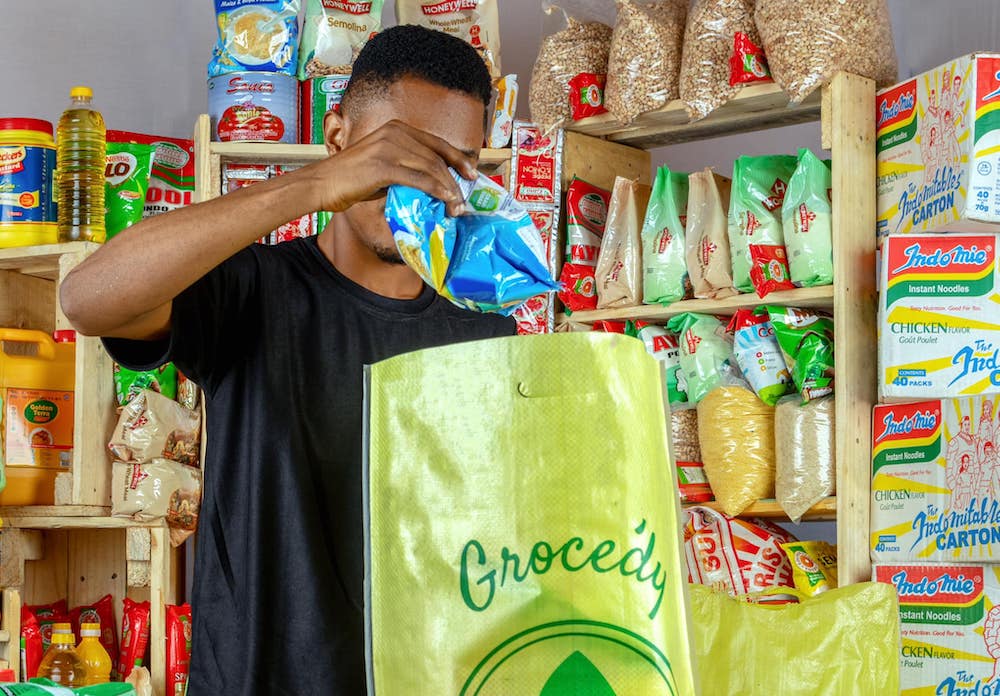It has been a difficult year for Nigerian consumers. Food prices on many staple items have shot up 15% to 25% since last year, putting pressure on everyday earners, many of whom who are now spending nearly all of their income on food.
“The cost of food is very prohibitive for low-income earners,” says Lanre Smith, founder of food subscription and delivery service Grocedy. “Low-income earners do not have the financial capacity to purchase adequate food supplies at affordable prices. When you live on less than $5 a day, you can only purchase a day’s worth of supplies [at a time].”
E-grocery startups like Grocedy have exploded in the pandemic, offering convenient and safe shopping experiences to consumers everywhere. But convenience isn’t Grocedy’s main concern. The company’s goal is helping Nigerian consumers save on food costs.
The startup offers monthly subscription boxes containing staple items like rice, beans, cassava meal, or garri, vegetable oil and milk, starting at 9,000 naira ($21) per month. Grocedy says its subscriptions save customers up to 20% on their monthly food purchases. It offers a pay-when-you-can model to give its customers flexibility.
Economies of scale
Grocedy sources its food items directly from small-scale farmers, as well as aggregators and manufacturers. Cutting out middle-men, prevalent in Africa’s food supply chain, reduces its costs, enabling it to pass savings on to customers.
“The cost of food increases as the supply chain increases,” explains Smith. “Manufacturers, distributors—everyone in the value chain—adds their own costs and as a result, they make food more expensive for the customers.”
To ensure a consistent supply, it partners with farmers to help them access the equipment and inputs they need seasonally.
On the consumer side of the business, Grocedy has both a smartphone app and a USSD application, which ensures its service is accessible to low-income Nigerians who don’t yet own smartphones. Customers can subscribe, make payments and manage their subscription services through both app formats. Grocedy partners with agency banking operator TeamApt to ensure that its mostly-unbanked customers can still make payments digitally.
The company has about 6,500 subscribers in Lagos. Smith says the company is currently raising an early funding round to support is expansion to other parts of Nigeria.
Data-driven growth
Grocedy’s subscription model and focus on lower-income customers sets the company apart from Lagos’ crowding e-grocery scene. E-commerce giant Jumia and e-grocer One Kiosk operate across Nigeria, while companies like Market Foodshop and Mile 12 Market offer same-day delivery around Lagos.
Grocedy sees the data it is collecting from customers as key to its growth and improvement of services.
“Because we bring so many customers onto our platform using food, we can analyze their financial habits, when they pay, how they pay, and what they are spending on the most,” says Smith.
The company is using such data to expand services to bill payments and mobile airtime top-ups and build out an alternative credit-scoring model to help customers access financial services like micro-credit, micro-health insurance and micro-pensions from Grocedy and partners organizations.
Finally, the company is building up its own last-mile delivery app-based service, which Smith says would enable individuals to enroll as drivers, as they would for Uber or other ride-hailing and delivery services, and boost their incomes.





